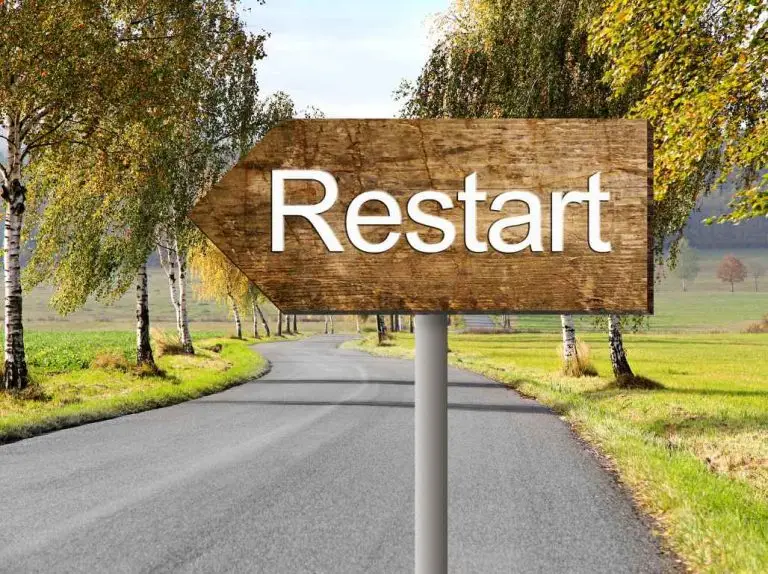How Does Change In Recovery Work
Change in recovery is not as simple as stopping use of a drug or alcohol, or deciding to have healthier habits. We can’t emphasize often enough that when you use drugs or have a gambling or other addiction, your brain function has been altered. You don’t think or act the same as you did before your use began. Not only that, it didn’t happen suddenly. You didn’t wake up one day with a full blown addiction that you need to feed every day. You’re in a dark place and it took some time to get there.
Is Lasting Change In Recovery Easy
Addiction develops slowly. Your unhealthy, even deadly, habits begin to take on new urgency; your relationships, work and family life are all affected. As your addiction become more ingrained and you develop a tolerance for your chosen obsession, other people are likely to see these changes and worry about them long before you do.
Change In Recovery Takes Time
Because your brain function has been altered over time, it takes time to understand, accept, and get results from treatment. Recovery from addiction is a complex, non-linear journey that varies from person to person. One helpful framework to understand this process is the “Stages of Change” model. This model outlines the different phases an individual might go through in their quest for a healthier life. Below, we explore these stages and how understanding them can be beneficial for individuals with addiction, their families, and healthcare providers.
The Model Of Change In Recovery Has 5 Stages
Pre-contemplation: You Don’t Want To Think About It
- Characteristics: In this stage, the individual is not yet aware of the problem or is in denial.
- Strategies for Loved Ones: Provide non-judgmental feedback and information. Discuss potential consequences of the addictive behavior.
Contemplation: Okay, Now You Consider You Might Have A Problem
- Characteristics: The person starts recognizing the problem but may still feel ambivalent about change.
- Strategies for Loved Ones: Offer emotional support. Encourage the individual to weigh the pros and cons of their current behavior.
Preparation: Here You might Be Researching How To Get Help
- Characteristics: The individual has decided to make a change and may take small steps toward this goal.
- Strategies for Loved Ones: Help them set achievable goals and offer to assist in finding resources.
Action: Taking The Steps To Deal With The Problem
- Characteristics: Actual changes in behavior occur during this stage. The person may seek professional help and follow a recovery plan.
- Strategies for Loved Ones: Offer ongoing emotional support. Celebrate even small victories to boost morale.
Maintenance: Creating A Whole New Recovery Lifestyle To Ensure Lasting Recovery
- Characteristics: The individual works to maintain new behaviors and avoid relapse.
- Strategies for Loved Ones: Continue to provide support. Help in identifying and avoiding potential triggers for relapse.
Relapse and Recycling: You’ve Slipped And Get Back On Track
- Characteristics: A relapse can occur, leading the individual back to one of the earlier stages.
- Strategies for Loved Ones: Encourage them not to give up. Reinforce that relapse is a common part of the recovery journey and not a sign of failure.
The Change In Recovery Model Helps Us Understand
For Individuals with Addiction
Knowing the stages can help the person gain a clearer understanding of their own journey, enabling them to tailor their efforts and strategies accordingly.
For Families and Loved Ones
Understanding where the individual is in their process can help families offer the most effective type of support and care.
For Healthcare Providers
For professionals like the best doctors in Sacramento, understanding these stages can be crucial for providing individualized treatment plans that are aligned with where the person is in their recovery journey.
Real-world Statistics and Trends
The Monitoring the Future Survey and the SAMHSA report on mental illness and substance use levels in 2021 provide insights into how addiction trends are evolving. Familiarizing yourself with these reports can offer context and assist in planning intervention and recovery strategies.
Conclusion
Understanding how change in recovery works offer invaluable insights into the recovery process. It can help individuals, loved ones, and healthcare providers develop more effective, tailored approaches to treatment and support. Remember that each individual’s journey is unique; thus, flexibility and adaptability are key to navigating the road to recovery successfully.
If you or a loved one is struggling with addiction, it’s essential to consult healthcare professionals for an accurate diagnosis and personalized treatment options. Your input is invaluable to us, so please feel free to share your experiences and thoughts.
More Articles To Read About Changes In Recovery
When Recovery Becomes Your Lifestyle Life Gets Easier
Benefits of Recovery Practices
Benefits of Recovery Practices
Myths About Addiction And What Makes Recovery Work
4 Reasons Using Mindfulness In Recovery Works
10 Ways Social Workers Help Addiction Recovery
Why Self-Care Is Critical For Recovery





















